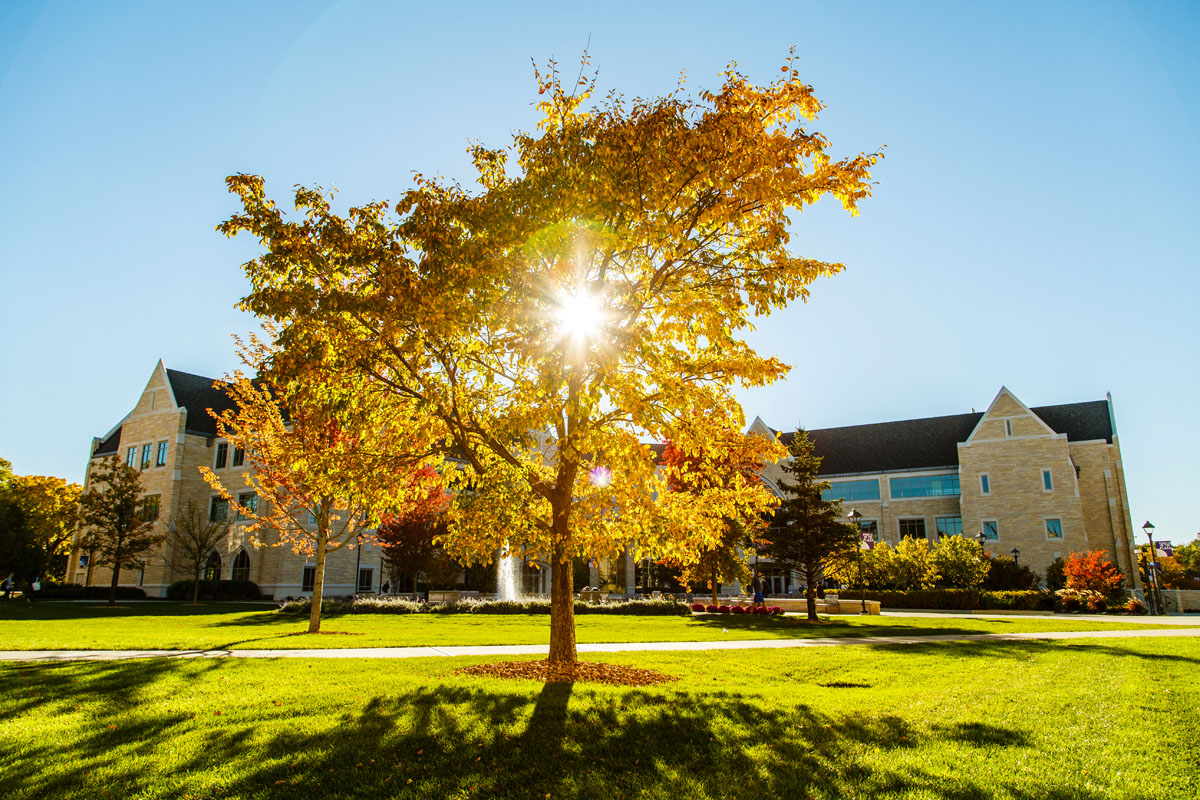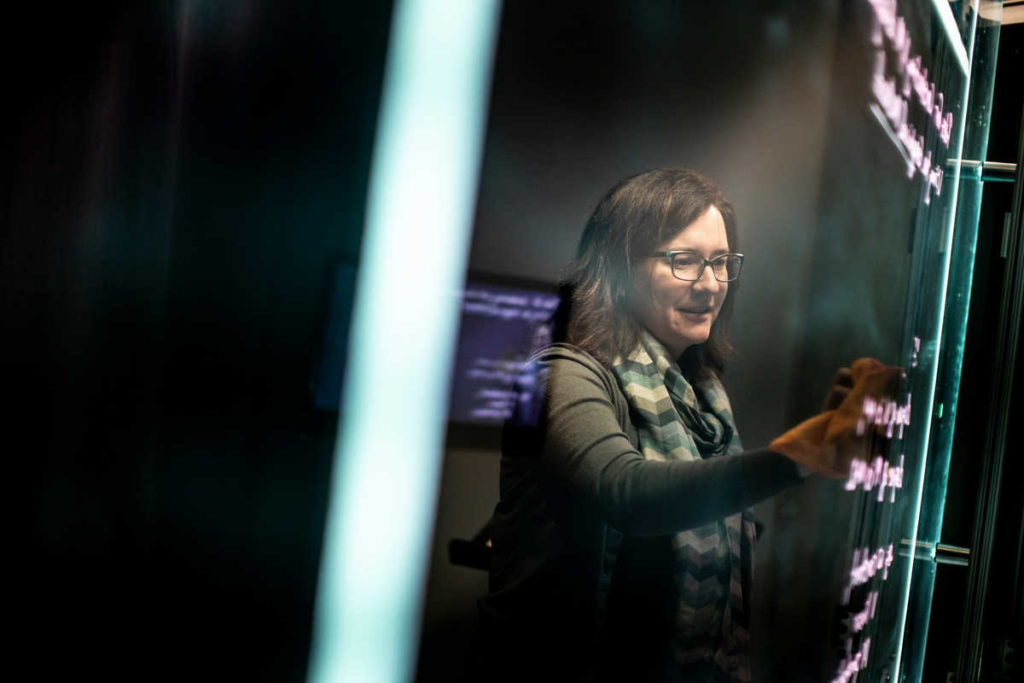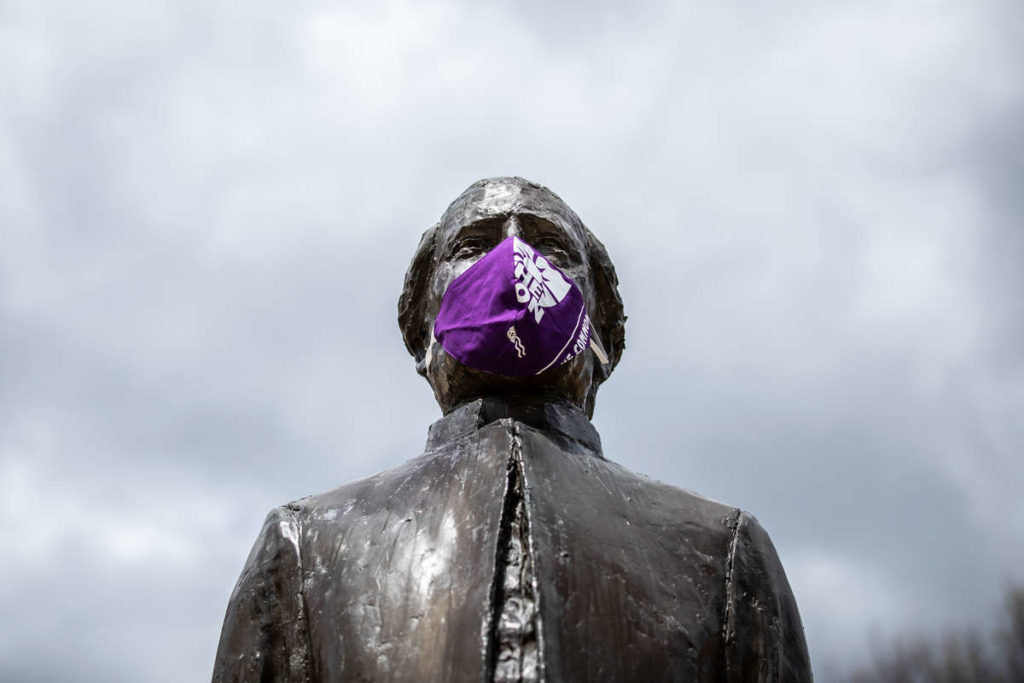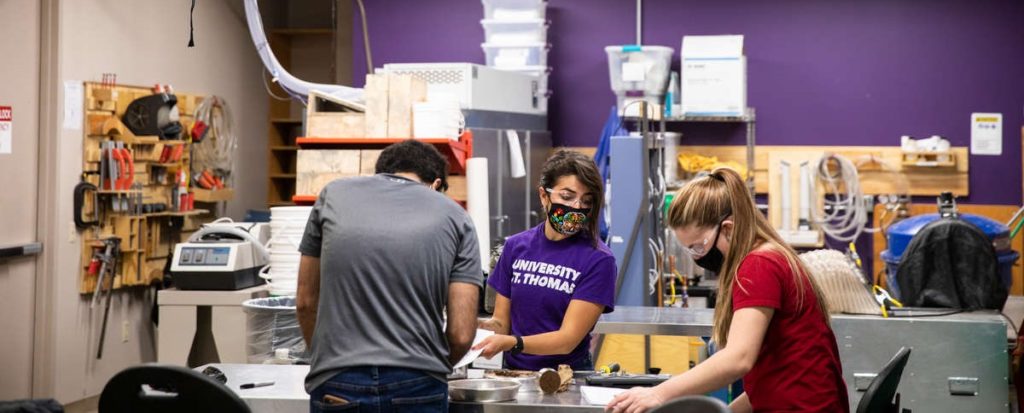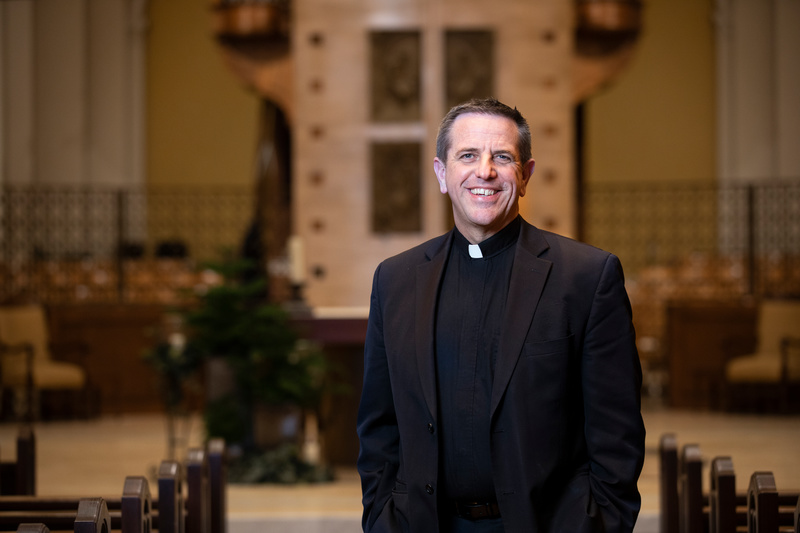Today I am pleased to share with you our completed St. Thomas COVID-19 Preparedness Plan. This plan applies to all members of our community – students, faculty, staff and campus visitors – and will guide how we safely reopen campus. The first phases of the plan will be implemented immediately.
While we have shown remarkable resilience in continuing our work while apart, I am excited to welcome our campus back together and experience the energy and personal connection that opening campus and being together will bring. This plan will help us provide that opportunity in a safe manner.
For six weeks, we have been diligently preparing St. Thomas to welcome our community back to campus to safely live, work, learn, worship, dine and compete. While we certainly cannot control the COVID-19 virus, I am confident that our plan, which includes recommendations gathered from stakeholders both on and off campus, will help protect the health and safety of the university community as we conduct the essential work of educating our St. Thomas students.
The success of this plan requires both changes in campus operations and behavior change from our community members. I urge you to read details in the plan about our enhanced cleaning protocols, new sanitizing stations, dining services changes, residence hall protocols, self-screening expectations and more. COVID-19 testing is currently in place at the Center for Well-Being, and we are creating additional testing capacity on campus, as well as setting up a team for contact tracing. All of these efforts, if embraced and followed, will help us respond to and contain the virus.
Here are some additional important highlights to note:
A Community of Care
Embedded within this plan, you’ll find an important spirit of care that our St. Thomas community will be compelled to embrace. Our mission and convictions as a Catholic university call on us to care for others and to give special attention to those who are most vulnerable. Each member of our community must take personal responsibility to prevent the spread of COVID-19, and we must help keep each other accountable to these community convictions. Thus, students, faculty and staff are expected to uphold expectations set forth in the plan.
Successful implementation will be a community effort that requires awareness of expectations and full cooperation. To protect ourselves, our families, our friends and the wider community, we will practice social distancing on and off campus and wear masks when warranted. We will also practice recommended self-screening, sanitation, testing, isolation and other health and safety measures outlined in the plan. And we will accommodate students, faculty and staff who are in high-risk groups or whose households include members of high-risk groups.
Watch this video to learn more about our community of care at St. Thomas.
Care in and out of the Classroom
We plan to follow our normal fall academic calendar, with the exception of the School of Law, which will start one week early and conclude in-person classes by Thanksgiving. Our faculty are preparing their fall classes to be able to readily pivot to fully online if needed at any time during the semester.
In order to reduce risks to students and faculty, many instructional experiences will be different this fall. Classes will be offered in several formats, including in-person, a mix of in-person with online, and fully online. Every classroom and lab will be set up to allow for adequate social distancing, and all classrooms will be equipped with technology to allow for remote delivery. We will provide accommodations for students and faculty who are unable to attend in-person classes for health reasons. Once courses are finalized, students will receive guidance on their fall schedules and instructions on making any needed changes.
Classrooms will be cleaned and sanitized every night, and cleaning materials such as disinfecting wipes will be made available for students and faculty to use in sanitizing their own work areas. Students and faculty will be expected to wear face coverings during class and while travelling between classes.
Out of the classroom, campus life will continue to provide opportunities for students, with clubs, social events and service opportunities operating safely with social distancing protocols in place.
Community and Expert Input
The plan was created by members of our University Action and Response Team, led by Vice President of Student Affairs Karen Lange and Vice Provost Wendy Wyatt. Suggestions from faculty, staff and students were incorporated. We also received positive feedback and helpful ideas from the Morrison Family College of Health Advisory Board, which includes public health and policy experts from the University of Minnesota, the Mayo Clinic, Allina Health, Hennepin Healthcare, HealthPartners and other prominent health care leaders. Additionally, we conducted an onsite campus visit with the epidemiologist from the Minnesota Department of Health (MDH) and received encouraging feedback and further advice.
I am confident that we have a thoughtful and well-advised plan for today and also acknowledge that we must be nimble and responsive as we continue to monitor COVID-19. The plan will be continually amended and improved as needed and in accordance with guidance from the Centers for Disease Control and Prevention (CDC) and MDH. You also can continue to provide feedback, which can be sent to Luis de Zengotita at the Center for Well-Being, who is managing community feedback. A new website launching next week will help inform the broader community about our plan.
Caring for Yourself
Finally, I am very excited about seeing you in person and encourage you to stay safe, healthy and well as we work toward opening. For many members of the community, the pandemic has been a difficult experience. Many have experienced mental and physical health challenges, economic strife and emotional hardships. Please be intentional about caring for yourself and treating one another with the care, respect and sensitivity that makes our St. Thomas community resilient and ever mindful of each other and the common good.
Although this plan will set into motion many changes to our daily operations and our personal behaviors, the University of St. Thomas will stay true to its mission of educating morally responsible leaders who advance the common good. I look forward to offering a vibrant and safe experience that maintains the spirit of St. Thomas as the campus where we love to learn, teach and work.
